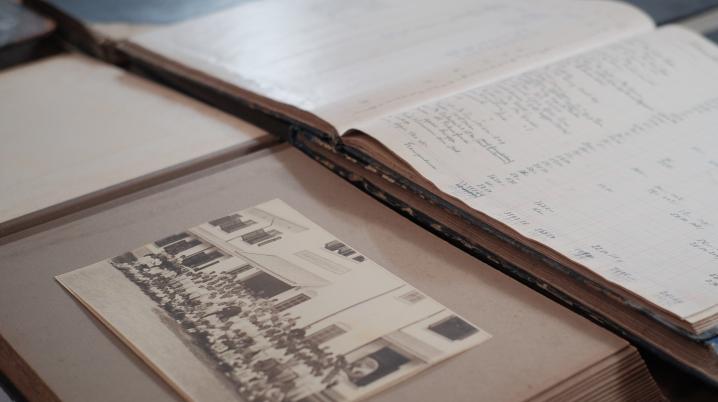
Documentary heritage collection of the Roman Catholic Orphanage Semarang (1830–1950) digitised
Inventory and scans are now available via the KDC catalogue
This work was carried out under Catholic Documentation Centre (KDC)’s Sharing Shared Heritage programme as a pilot in Indonesia, in collaboration with the National Archives of the Netherlands through its International Heritage Programme. The collection has already been used in related education and research projects that foreground collaboration, sharing and exchange, serving as a catalyst for partnerships connecting communities, educators and researchers in Indonesia and the Netherlands.
Institutional child welfare in a colonial context
From the early nineteenth century, the Semarang Roman Catholic Orphanage functioned within Catholic mission networks and under colonial regulation and subsidy. It served thousands of children with European legal status (landaard Europees), many born to European soldiers and Indonesian women, and exemplifies institutional child welfare in a colonial context. The pupil and admission registers (named entries, dates, kinship notes), board minutes and annual reports, ledgers, chronicles and photo albums in the collection provide a rich primary source base for historical and family history research across Indonesia and the Netherlands.
Sharing a shared past: Launch events in the Netherlands and Indonesia
The inventory and the richness of the Roman Catholic Orphanage Semarang documentary heritage were first presented in June at the symposium “Pionieren in Gedeeld Erfgoed” at KDC in Nijmegen. A video message from the current custodian in Semarang, along with sessions with researchers, heritage professionals, and community stakeholders in the Netherlands, underlined the vital importance of this shared past today and the richness of the collection for communities, researchers, and family historians. It was presented again on 3 October 2025 in Semarang to community members, students, historians and other scholars at UNIKA Soegijapranata University. Dr. Maaike Derksen and dr. Chiara Candaele discussed institutional and colonial histories alongside selected life stories of nineteenth-century pupils, demonstrating how the collection supports research on institutional child welfare in a colonial context and its significance for genealogical research in both countries. The session also initiated a discussion on how the orphanage’s history is perceived and remembered in Indonesia, including themes that remain underexplored in both Indonesian and Dutch historiographies.
Shared pasts, local priorities
The KDC pilot prompted sustained reflection on the value and potential of this documentary heritage for communities and researchers alike. As the pilot concludes, Indonesian partners signalled plans to strengthen community archives, digitise local holdings to broaden access, invest in capacity building, particularly for working with Dutch-language materials, and explore exchanges with the National Archives of the Netherlands and its partners.

